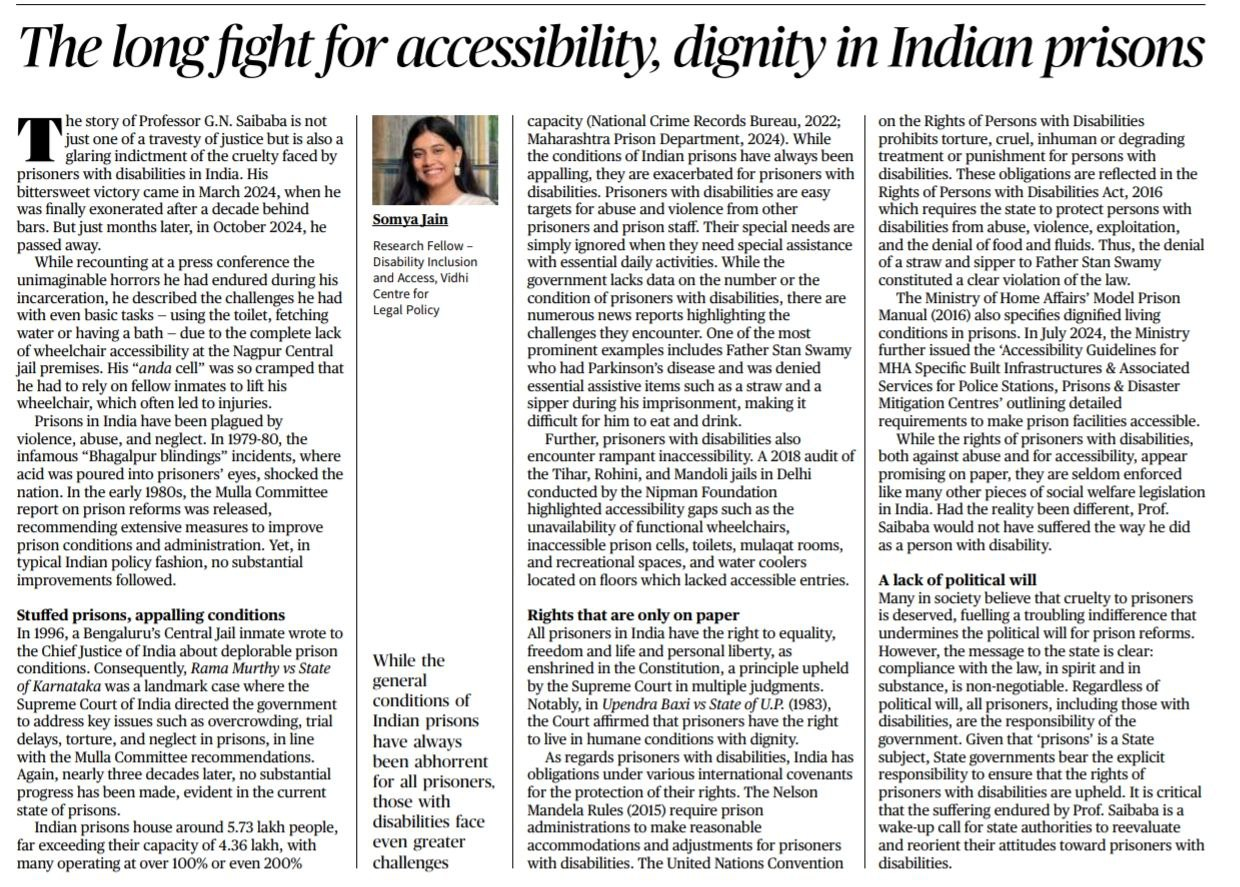Ensuring Accessibility and Dignity for Persons with Disabilities in Indian Prisons
Introduction
The conditions of Indian prisons have historically been grim, but they are particularly harsher for prisoners with disabilities. Cases such as that of Professor G.N. Saibaba and Father Stan Swamy highlight the glaring lack of basic facilities and accessibility for prisoners with disabilities, which is a violation of their fundamental rights and human dignity.
Challenges in Indian Prisons
- Inhumane Treatment of Disabled Prisoners
- Lack of wheelchair-accessible facilities, leading to dependency on fellow inmates for basic needs like using the toilet or bathing.
- Denial of assistive devices such as straws, sippers, or functional wheelchairs.
- Overcrowding and Poor Infrastructure
- Many prisons operate at over 100-200% of their capacity (NCRB, 2022).
- Inaccessible facilities like toilets, mulqat (meeting) rooms, recreational areas, and entryways.
- Neglect of Special Needs
- Absence of data on prisoners with disabilities.
- Prison staff often untrained to address the specific needs of disabled inmates.
Legal Framework and Enforcement Gaps
- Rights on Paper
- The Rights of Persons with Disabilities Act, 2016 mandates non-discrimination and accessible facilities.
- International obligations like the Nelson Mandela Rules and the UN Convention on the Rights of Persons with Disabilities emphasize humane treatment.
- Weak Implementation
- The 2016 Model Prison Manual and 2024 Accessibility Guidelines for Prisons by the Ministry of Home Affairs remain poorly enforced.
Cases Highlighting Systemic Failures
- Professor G.N. Saibaba: Faced severe hardships due to lack of accessible facilities in Nagpur Central Jail.
- Father Stan Swamy: Denied basic assistive tools such as a straw and sipper, leading to suffering during detention.
Conclusion
- Despite legislative provisions and international commitments, the treatment of disabled prisoners in India reflects institutional apathy and a lack of political will.
- Ensuring accessible prison infrastructure and compassionate administration is not just a legal obligation but a moral imperative.
Cases like Prof. Saibaba’s should serve as a wake-up call for systemic reform to uphold the dignity of all prisoners, especially those with disabilities.


